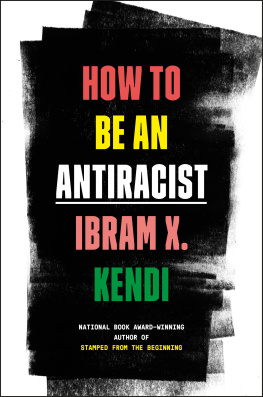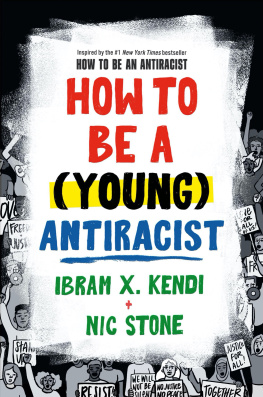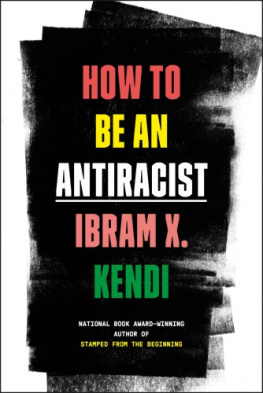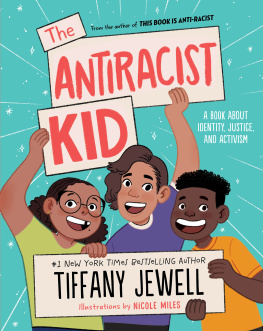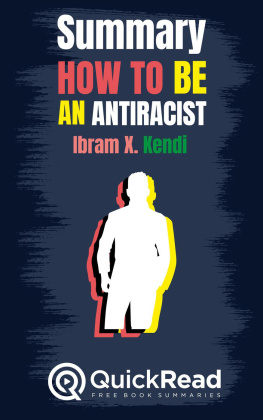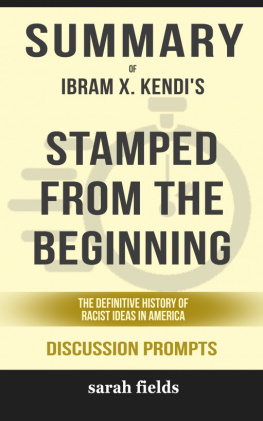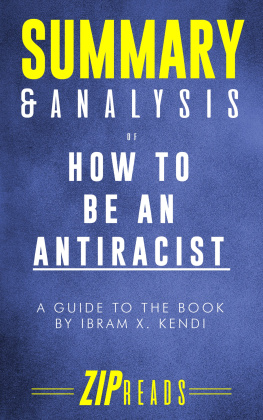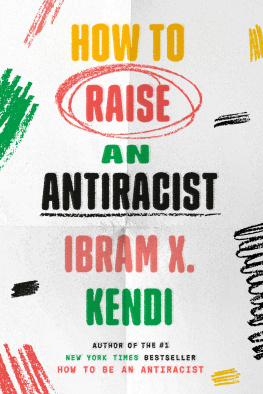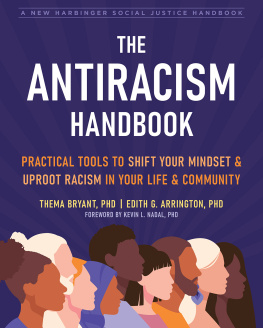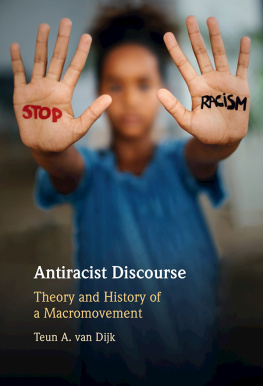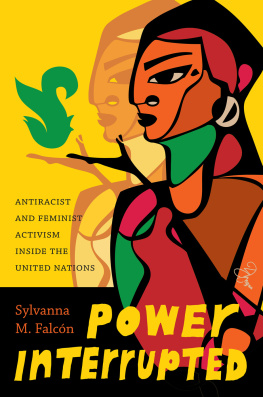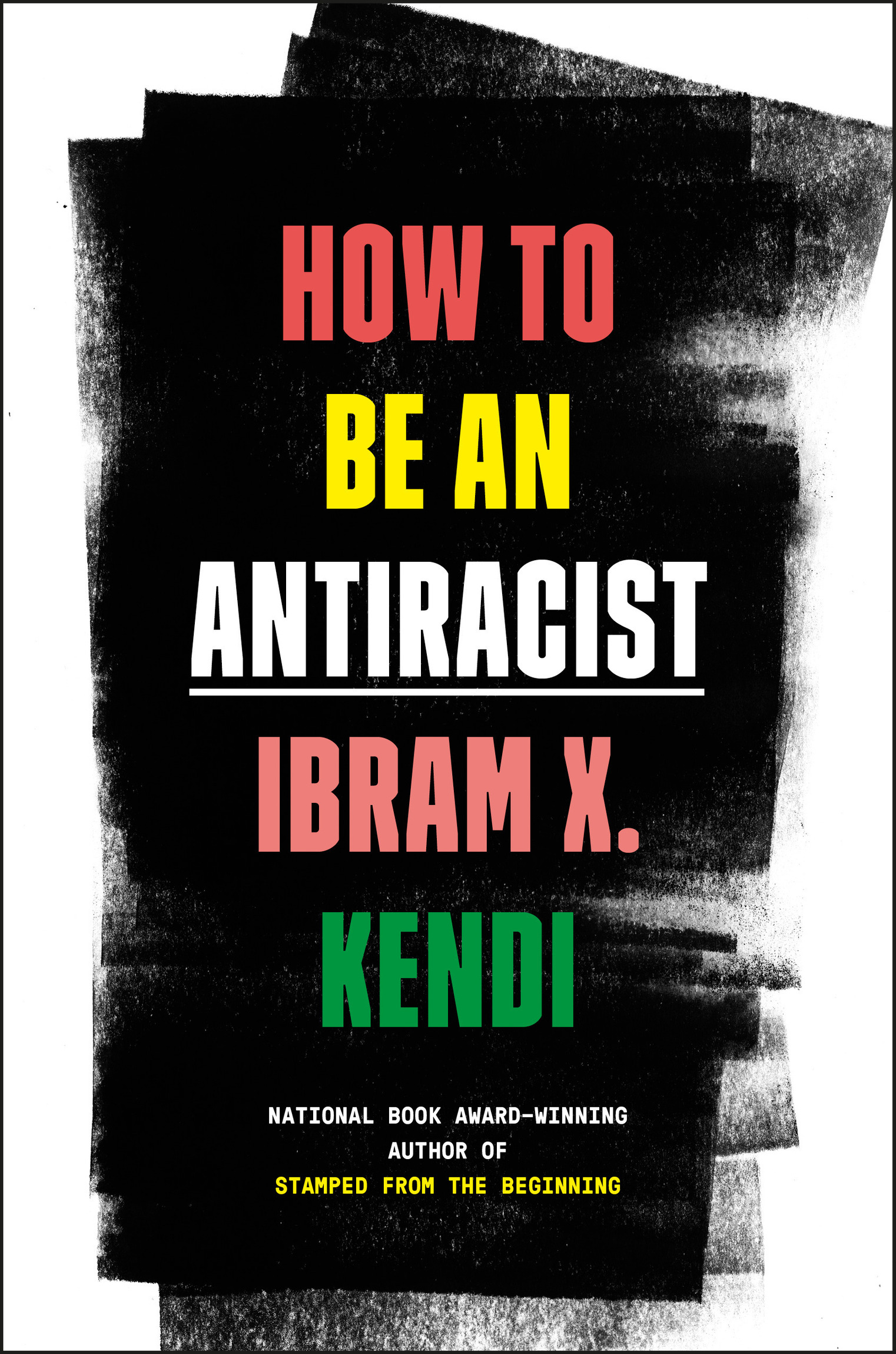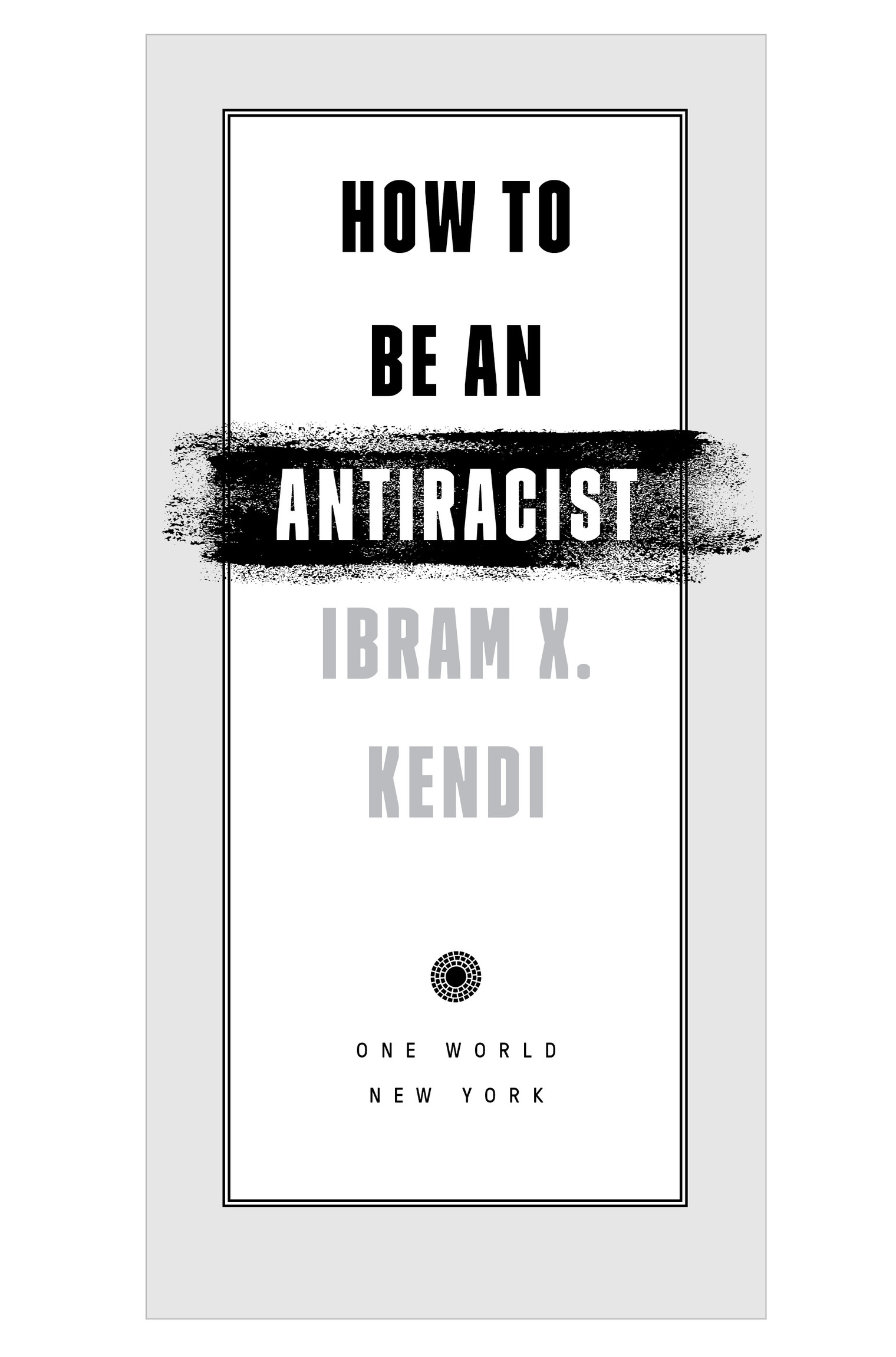Copyright 2019 by Ibram X. Kendi
All rights reserved.
Published in the United States by One World, an imprint of Random House, a division of Penguin Random House LLC, New York.
O NE W ORLD is a registered trademark and its colophon is a trademark of Penguin Random House LLC.
Names: Kendi, Ibram X., author.
Title: How to be an antiracist / Ibram X. Kendi.
Description: New York : One World, 2019. | Includes index.
Subjects: LCSH: Anti-racismUnited States. | RacismPsychological aspects. | United StatesRace relations. | Kendi, Ibram X.
Classification: LCC E184.A1 K344 2019 | DDC 305.800973dc23 LC record available at https://lccn.loc.gov/2018058619
MY RACIST INTRODUCTION
I DESPISED SUITS AND ties. For seventeen years I had been surrounded by suit-wearing, tie-choking, hat-flying church folk. My teenage wardrobe hollered the defiance of a preachers kid.
It was January 17, 2000. More than three thousand Black peoplewith a smattering of White folksarrived that Monday morning in their Sunday best at the Hylton Memorial Chapel in Northern Virginia. My parents arrived in a state of shock. Their floundering son had somehow made it to the final round of the Prince William County Martin Luther King Jr. oratorical contest.
I didnt show up with a white collar under a dark suit and matching dark tie like most of my competitors. I sported a racy golden-brown blazer with a slick black shirt and bright color-streaked tie underneath. The hem of my baggy black slacks crested over my creamy boots. Id already failed the test of respectability before I opened my mouth, but my parents, Carol and Larry, were all smiles nonetheless. They couldnt remember the last time they saw me wearing a tie and blazer, however loud and crazy.
But it wasnt just my clothes that didnt fit the scene. My competitors were academic prodigies. I wasnt. I carried a GPA lower than 3.0; my SAT score barely cracked 1000. Colleges were recruiting my competitors. I was riding the high of having received surprise admission letters from the two colleges Id halfheartedly applied to.
A few weeks before, I was on the basketball court with my high school team, warming up for a home game, cycling through layup lines. My father, all six foot three and two hundred pounds of him, emerged from my high school gyms entrance. He slowly walked onto the basketball court, flailing his long arms to get my attentionand embarrassing me before what we could call the White judge. Classic Dad. He couldnt care less what judgmental White people thought about him. He rarely if ever put on a happy mask, faked a calmer voice, hid his opinion, or avoided making a scene. I loved and hated my father for living on his own terms in a world that usually denies Black people their own terms. It was the sort of defiance that could have gotten him lynched by a mob in a different time and placeor lynched by men in badges today.
I jogged over to him before he could flail his way right into our layup lines. Weirdly giddy, he handed me a brown manila envelope.
This came for you today.
He motioned me to open the envelope, right there at half-court as the White students and teachers looked on.
I pulled out the letter and read it: I had been admitted to Hampton University in southern Virginia. My immediate shock exploded into unspeakable happiness. I embraced Dad and exhaled. Tears mixed with warm-up sweat on my face. The judging White eyes around us faded.
I thought I was stupid, too dumb for college. Of course, intelligence is as subjective as beauty. But I kept using objective standards, like test scores and report cards, to judge myself. No wonder I sent out only two college applications: one to Hampton and the other to the institution I ended up attending, Florida A&M University. Fewer applications meant less rejectionand I fully expected those two historically Black universities to reject me. Why would any university want an idiot on their campus who cant understand Shakespeare? It never occurred to me that maybe I wasnt really trying to understand Shakespeare and thats why I dropped out of my English II International Baccalaureate class during my senior year. Then again, I did not read much of anything in those years.
Maybe if Id read history then, Id have learned about the historical significance of the new town my family had moved to from New York City in 1997. I would have learned about all those Confederate memorials surrounding me in Manassas, Virginia, like Robert E. Lees dead army. I would have learned why so many tourists trek to Manassas National Battlefield Park to relive the glory of the Confederate victories at the Battles of Bull Run during the Civil War. It was there that General Thomas J. Jackson acquired his nickname, Stonewall, for his stubborn defense of the Confederacy. Northern Virginians kept the stonewall intact after all these years. Did anyone notice the irony that at this Martin Luther King Jr. oratorical contest, my free Black life represented Stonewall Jackson High School?
T HE DELIGHTFUL EVENT organizers from Delta Sigma Theta sorority, the proud dignitaries, and the competitors were all seated on the pulpit. (The group was too large to say we were seated in the pulpit.) The audience sat in rows that curved around the long, arched pulpit, giving room for speakers to pace to the far sides of the chapel while delivering their talks; five stairs also allowed us to descend into the crowd if we wanted.
The middle schoolers had given their surprisingly mature speeches. The exhilarating childrens choir had sung behind us. The audience sat back down and went silent in anticipation of the three high school orators.
I went first, finally approaching the climax of an experience that had already changed my life. From winning my high school competition months before to winning best before the judges at a countywide competition weeks beforeI felt a special rainstorm of academic confidence. If I came out of the experience dripping with confidence for college, then Id entered from a high school drought. Even now I wonder if it was my poor sense of self that first generated my poor sense of my people. Or was it my poor sense of my people that inflamed a poor sense of myself? Like the famous question about the chicken and the egg, the answer is less important than the cycle it describes. Racist ideas make people of color think less of themselves, which makes them more vulnerable to racist ideas. Racist ideas make White people think more of themselves, which further attracts them to racist ideas.
I thought I was a subpar student and was bombarded by messagesfrom Black people, White people, the mediathat told me that the reason was rooted in my racewhich made me more discouraged and less motivated as a studentwhich only further reinforced for me the racist idea that Black people just werent very studiouswhich made me feel even more despair or indifferenceand on it went. At no point was this cycle interrupted by a deeper analysis of my own specific circumstances and shortcomings or a critical look at the ideas of the society that judged meinstead, the cycle hardened the racist ideas inside me until I was ready to preach them to others.

